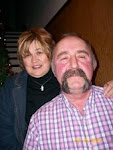Kay Arthur has written a study book entitled Teach Me Your Ways
She starts out the study on Leviticus with the subtitle "Be Holy Even As I AM Holy"
She explains how this seemingly boring book can actually be used to bring about a
revival in your life. She explains how you will come face to face with sin and the horrors that result from sinning.
She says that
She says
Holy means separate As it says in the Wikepedia She starts out the study on Leviticus with the subtitle "Be Holy Even As I AM Holy"
She explains how this seemingly boring book can actually be used to bring about a
revival in your life. She explains how you will come face to face with sin and the horrors that result from sinning.
She says that
"if you listen, you will come away with a holy fear of God, ~ a reverential trust and respect that will bring cleansing and new intimacy to your relationship with your Father God."The one who makes you holy, Yahweh Mekaddesh I like the word reverential meaning inspiring reverence. This sort of reverential trust can only come AFTER you have put your trust in Christ. because BEFORE Christ, we do not truly desire to be holy. Catherine Martin, our Author for the study book we are using Trusting In The Names of God Shares on page 188 of the book how we can learn from the Israelites in the book of Exodus.
She says
"sanctification follows redemption. We see this in the lives of the people of Israel, and their example, we have a picture of what God has done in our lives. after the people of Israel we rescued and set free by God from the cruel bondage of Egypt, they began their journey with God. God wanted to be their God , and they were to be His people (Exodus 6:7) He had in mind for them a lifeShe continues to share how
with Him in the promised land. What would that mean for these people? They must be sanctified ~
holy and separate, like their God and not like the surrounding nations."Catherine Martin points out how God gave the law to Moses so His people would know how to live. How to be holy. He is after all Yahweh Mekaddesh, He makes you holy.
"In Leviticus, we see that Yahweh Mekaddesh sanctifies with purpose, influencing many areas of life, including keeping the Sabbath (Exodus 31:13), obedience (Leviticus 20:8), holiness (Exodus 22:8-9, 16), speech (Leviticus 22:32), and witnessing to the world (Ezekiel 37:28)."
"Some consider that the Hebrew noun for "holiness," kedushah (Hebrew: קדושה), from the adjective kodesh, "holy," has the connotation of "separateness", although Hebrew has other verbs and adjectives to indicate separate, such as badal (בָּדַל). That which is holy in Judaism is set apart, and the separation is maintained by both legal and spiritual measures Certain places and times are intrinsically sacred, and strictures are placed on one's actions in those situations. However, holiness is not a single state, but contains a broad spectrum. The Mishnah lists concentric circles of holiness surrounding the Temple in Jerusalem: Holy of Holies; Temple Sanctuary; Temple Vestibule; Court of Priests; Court of Israelites; Court of Women; Temple Mount; the walled city of Jerusalem; all the walled cities of Israel; and the borders of the Land of Israel. Distinctions are made as to who and what are permitted in each area. Likewise, the holidays, including and especially the Sabbath, are considered to be holy in time; the Torah calls them "holy [days of] gathering. Work is not allowed on those days, and rabbinic tradition lists 39 categories of activity that are specifically prohibited."
We also need to NOT apologise when someone might taunt us and call us "holier than thou" We should explain that we are no better than anyone else, but that God has indeed called us to be holy, and that we are not going to apologize for being a "cut above" because God has called us to separate and become like Him. All this but saying He is humble and we must also be humble.Fine line? you decide.


















No comments:
Post a Comment